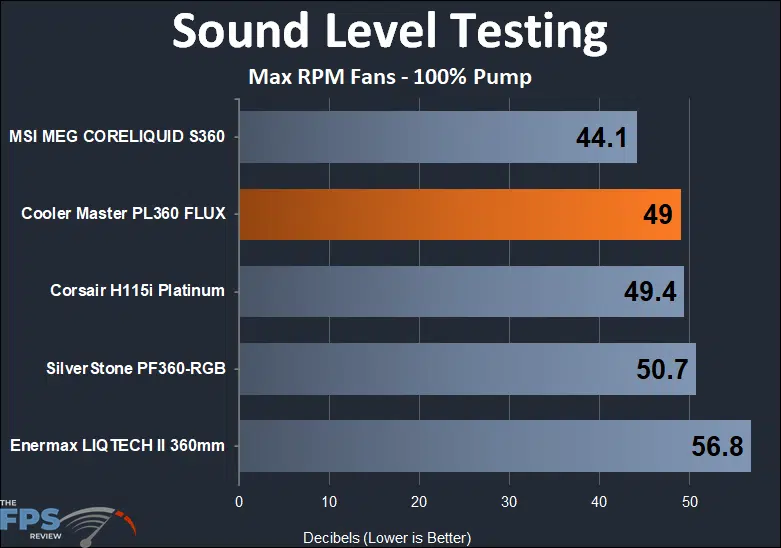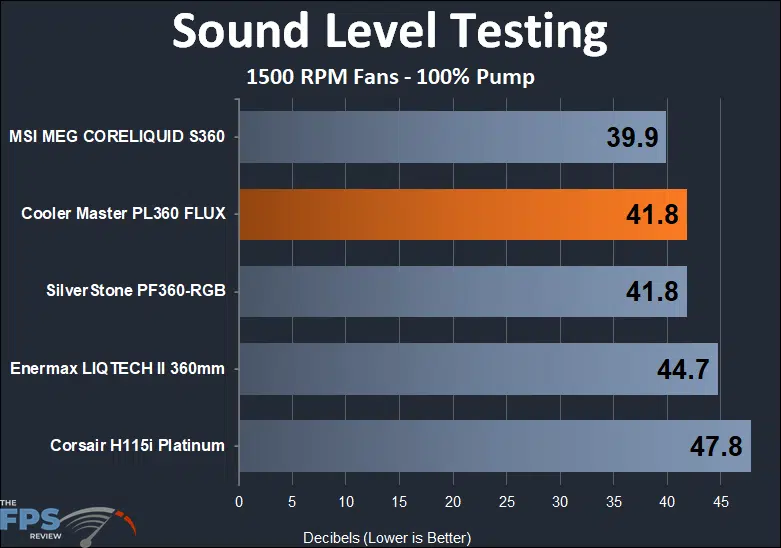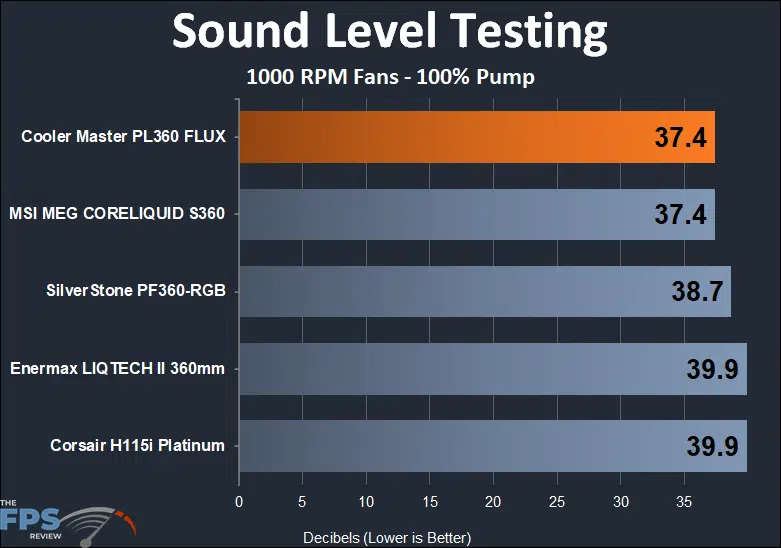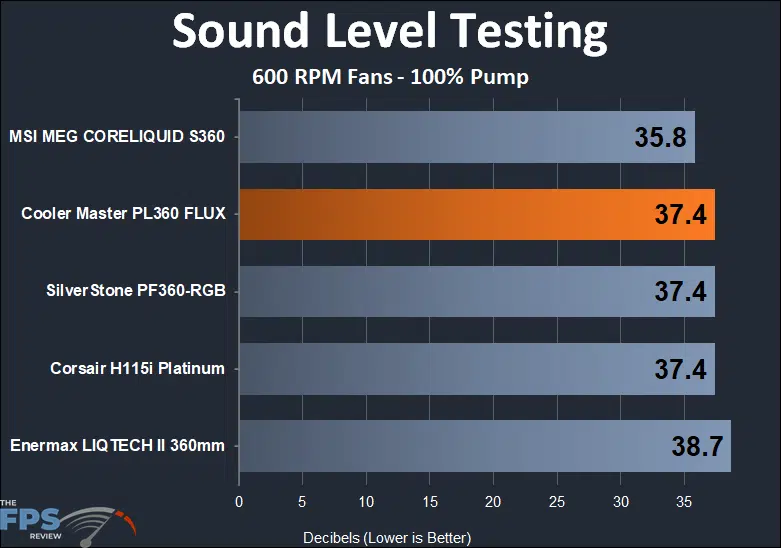Sound Level Testing
While we were testing cooling capabilities, as outlined in our introduction article, we were also tracking the sound level of each of the coolers using a Risepro SPL meter attached to a boom arm pointed directly at the fans of the radiator at a distance of 12 inches. We recorded the dB(A) level for each fan and pump speed tested. The ambient room sound level measured 33 decibels. Displayed below are the results of our Stock Clock Testing.
Max Fans – 100% Pump Speed

At maximum fan levels, the Cooler Master MasterLiquid PL360 FLUX steps into second place at 49 dB(A), leaving the reigning champ in the form of the MSI MEG CORELIQUID S360 at 44.1 dB(A). From a subjective perspective, we agree with the SPL meter’s conclusion and consider the noise level to be acceptable for the cooling performance given.
1500 RPM Fans – 100% Pump Speed

Bumping the fans down to 1500 RPM keeps the Cooler Master MasterLiquid PL360 FLUX in second place, but the margin of victory is closing.
1000 RPM Fans – 100% Pump Speed

At 1000 RPM, the Cooler Master MasterLiquid PL360 FLUX tied for the lead with the MSI MEG CORELIQUID S360. From a subjective perspective, this is where the Cooler Master MasterLiquid PL360 FLUX became one with ambient noise. The rest of the field is now approaching it quietly to the point where there’s not a material difference in noise output.
600 RPM Fans – 100% Pump Speed

At 600 RPM, the Cooler Master MasterLiquid PL360 FLUX got stuck in second behind the MSI MEG CORELIQUID S360. However, at this speed, the subjective differences in noise between each of the contestants are purely academic to the point where the SPL meter could be a random number generator and we wouldn’t know the difference.
